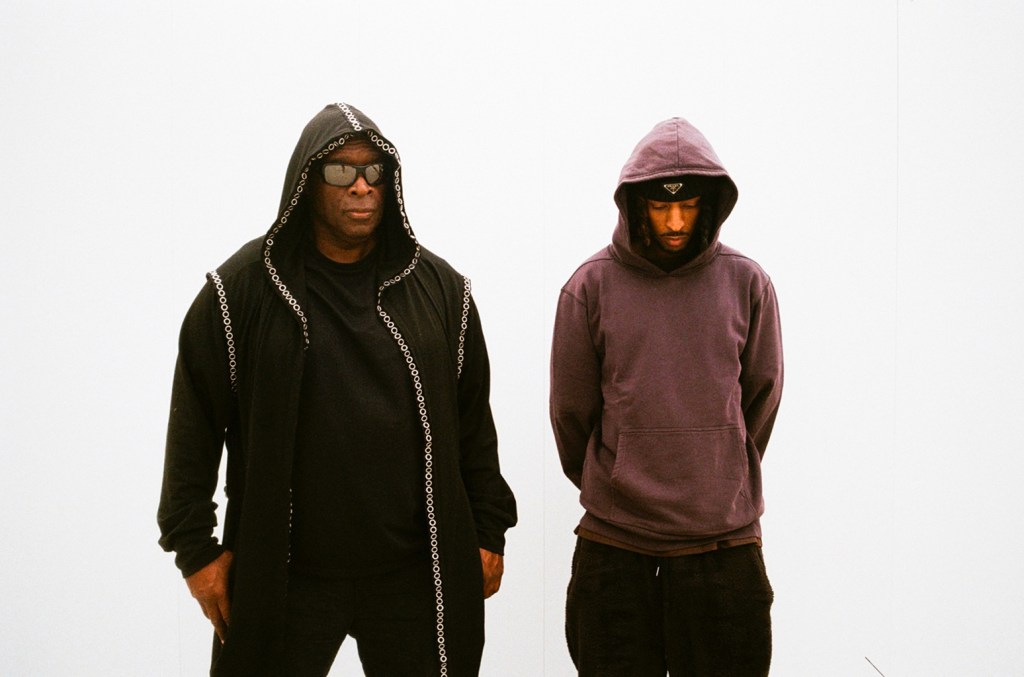Spotify’s Joe Hadley on Why Japanese Music’s Global Moment Is Just Beginning & How MUSIC AWARDS JAPAN Sets the Stage
Written by djfrosty on June 12, 2025
2025 has marked a pivotal year for Japan‘s music culture, with signs of transformation echoing both at home and abroad. But what does the future look like from a global vantage point? To find out, Billboard JAPAN sat down with Joe Hadley – Spotify‘s Global Head of Music Partnerships & Audience – during his visit to Japan in May for the inaugural MUSIC AWARDS JAPAN 2025, the country’s first-ever global music awards.
In recent years, a growing number of Japanese artists, like Kenshi Yonezu, Fujii Kaze, YOASOBI, and Ado, have gone on successful world tours. People are saying that J-pop is starting to make sweeping advances overseas. How do you see the current situation?
It’s amazing to see these artists touring globally and resonating with fans around the world. And it’s not just about live shows – the streaming numbers tell a compelling story of growing global interest as well. In 2024, about 50% of the royalties paid out to Japanese artists were from outside of Japan, and nearly three-quarters of that was for tracks in Japanese. In other words, the music doesn’t have to be in English to travel. It does really well in Japanese, which is a very telling sign about the world’s reception and readiness for Japanese music.
Trending on Billboard
Here’s another really fun stat: in 2024 alone, Japanese artists saw about 2.6 billion first-time streams from listeners outside of Japan. This is a pretty incredible number. Japanese music is really expanding its global reach.
So does this mean that Japanese music is drawing a lot of attention, or that the widespread use of music streaming services like Spotify is transforming the structure of the global music business, or both?
It’s a bit of both. We have a really strong product and we also have an incredible editorial team. When you talk about the globalization of music, you also have to talk about global curation groups within Spotify. These are teams of editors specializing in each genre and region who come together from around the world to share music and support one another in getting music playlisted in the right places. Creating playlists like Gacha Pop, which is popular outside of Japan, is really important, and our role is to use curated playlists like this to stream music to global audiences. Personalization features like AI DJ also help share the world discover this music on Spotify.
Could you talk to us a bit about the current state of music culture? What trends and movements are you keeping an eye on?
Music is really travelling around the world. All kinds of artists are being listened to in countries and regions outside the ones they’re from. This is tremendously exciting. Spotify has almost 700 million monthly listeners, and its ability to export music globally just keeps growing and growing.
One recent trend I’m keeping my eye on is the global growth of country music. We’re starting to see it spreading outside of the U.S. to places like the U.K. and Europe, but really in Australia and New Zealand. You’d also be hard-pressed to miss the growth of African music outside Africa.
Of course, Japanese music is important, too. For example, I saw in the news the other day that ONE OR EIGHT’s “DSTM” had become the first song by a Japanese boy band in America’s Media Base Top 40 radio chart. That’s a great starting point. Even beyond the collaboration between Megan Thee Stallion and Yuki Chiba, we’re seeing the potential for a lot of growth around the world. This ties back to what we were talking about earlier, regarding global artists that are touring.
Until now, some have been saying that Japan’s music industry is lagging behind the rest of the world. What do you see as Japan’s current position within the global music scene?
Japan is in the middle of that same movement. That’s why we’re all here in Japan, and I’m really looking forward to going to the MUSIC AWARDS JAPAN (MAJ) award ceremony in Kyoto.
What do you think about the launch of the MUSIC AWARDS JAPAN?
I think it’s an incredible opportunity and a super exciting one. Spotify is really proud to partner with CEIPA (the Japan Culture and Entertainment Industry Promotion Society, which is made up of five major music industry groups) on MAJ. It’s CEIPA’s role to empower artists and creators, and we want to be side-by-side with them on their journey of developing Japan’s music industry both at home and abroad. That’s why we’re here taking part in this inaugural event.
The five nominees for Top Global Hit From Japan were selected using Spotify’s voting feature, and they were voted on by general overseas Spotify listeners. How do you see this award?
There are a lot of award shows out there, but I think having one that involves ordinary music fans is very meaningful. I can’t divulge any specific voting numbers, but the number of voters was far more than I’d expected, which really impressed on me how interested people are in the award.
I was a part of the voting process, and that was very much a learning experience for me. It made me feel even more involved with Japan and created a stronger sense of responsibility. The selection of nominees was quite diverse, which I think is representative of Japanese music as a whole. I think it’s easy if you’re not familiar with Japanese music to pigeonhole or stereotype it, but there are many different genres. That definitely came across in the nomination process.
What kind of future do you think the MUSIC AWARDS JAPAN will help create for Japan’s music culture?
In my opinion, the biggest contribution right away is the very fact that the event is happening. It’s like a wedding, where you gather together people who’ve probably never all been in the same room – in this case, artists, executives, writers, and the like. So this will be the first time, but it’s going to continue and grow to have a massive impact. It won’t just be Japanese artists, but it will get artists from other countries to come to Japan, which is going to have ripple effects. But for me, the most exciting part and the biggest impact will be having those people in the room, feeling the energy and the connections that come from it.
What do you see for the future of Japan’s music scene?
It’s already been going in a pretty incredible direction these last five or ten years. I think if Spotify continues to grow, we continue to work with more local partners like CEIPA, and we continue to think globally, Japanese music will keep growing at the same rate. I do think it’s on the artists, the labels, and their teams to make sure that they’re hitting the markets, going out and continuing to tour, and being intentional about collaborations, but the sky’s the limit. I’m very, very optimistic and excited about the future of Japanese music and music as a whole.
—This interview by Tomonori Shiba first appeared on Billboard Japan

 State Champ Radio
State Champ Radio 





